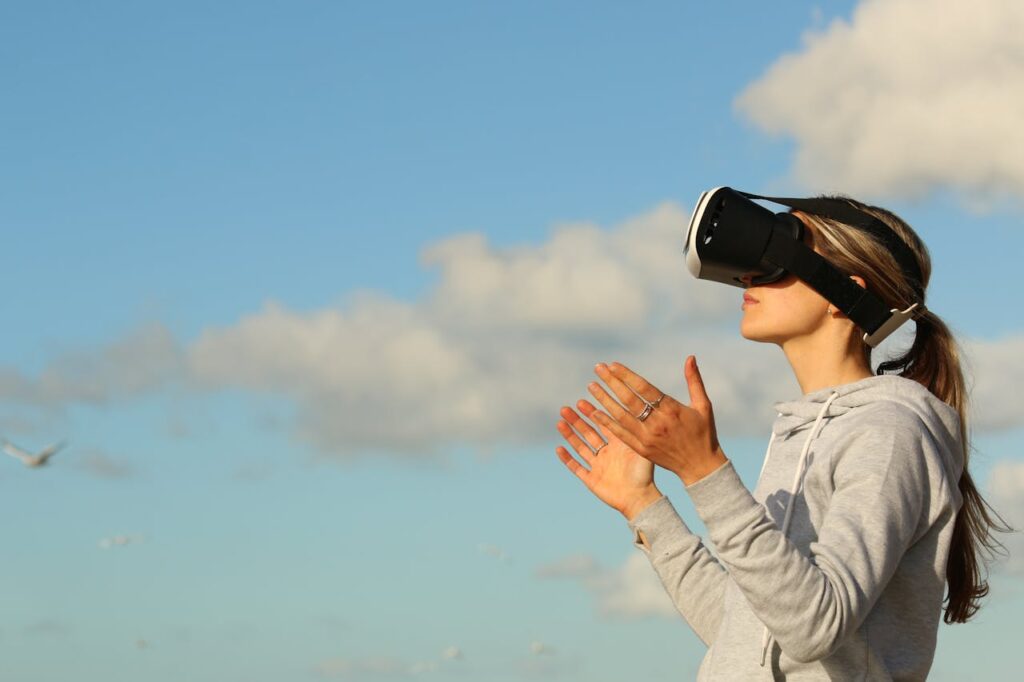
Can you think about a world where you can step into any reality of your choice—a space and time where your experiences, interactions, and surroundings are simulated to mimic the complexities of everyday life in a great detail. This concept of infinite life stimulation isn’t just science fiction as it is the basic theory of virtual reality (VR) and simulation technologies that are rapidly updating our understanding of existence itself. The quote “My life can be infinitely simulated” represents the significant potential digital reality can offer us, inspiring people to explore how these technologies remove the difference between what is real and what is artificial. I chose to title this post as My Life Can be Infinitely Simulated because I think it fits my article and today’s discussion about simulation and how it will impact our future lives.
The Revolution of Virtual Reality and Simulation
As many people know that virtual reality isn’t just about gaming anymore, but it is about creating a real-world environment that feels indistinguishable from our very reality. Today we can explore ancient civilizations, train for high-risk professions, or simply socialize in virtual spaces with the help of VR which has given us endless possibilities. Researchers at Stanford University have shown that VR can alter the perception of self and even lead to changes in behavior through exposure therapy (Stanford, 2023). These technologies are not just about entertainment but are increasingly used in fields like education, therapy, and more, helping us learn, heal, and connect.
Exploring the Idea of Infinite Simulation
The concept of “infinite simulation” raises interesting questions about the nature of experience and consciousness. As we indulge ourselves in virtual environments, we face the limits of what makes genuine human interaction. Studies from the University of Oxford suggest that prolonged exposure to simulated environments can trigger emotional responses similar to those in real-life situations, and with that we can say that it leaves deep psychological impact on users, depending on what people do in the virtually real environment. They claim it can help people with mental health issues to learn to cope with their symptoms by practicing it in VR. You can learn to form good or bad habits while using VR or similar tech, like you can get an army training, or can do a robbery. Just like anything, VR has its potential positive uses and negatives too.
The Role of Technology in Influencing Perception
Technology has always influenced how we perceive and interact with the world, but virtual simulation takes this influence to a new level. People who are disabled or cannot walk can actually walk through the streets of Tokyo or explore the depths of the Amazon rainforest while sitting at their couch with Virtual Reality. These experiences not only broaden our present limitations due to physical and economical challenges, but also challenge our understanding of what is real and what is simulated. Research published in the Journal of Experimental Psychology emphasizes that VR environments can cause a phenomenon called “spatial presence,” which means experiencing a strong sense of being physically present in the simulated environment. This phenomenon emphasizes the unmatched power of VR in controlling our perception and emotional responses.
Existential Questions and Reflections
“My life can be infinitely simulated” makes us think about existential questions about identity, authenticity, and the fundamentals of human experience, meaning we are forced to think about what is real and what is unreal. We might ask, Are we living in a highly-detailed or infinitely simulated world? Can simulated experiences replace the authenticity and reality of real-life environments? Many tech nerds argue that while VR can provide a very detailed and almost real like environment, they still lack the depth and genuinity of an actual human environment. The University of Cambridge’s Center for the Study of Existential Risk talks about advancements in VR can change our life and genuineness. They say its development in the near future can blur the boundaries between reality and simulation, urging all of us to be careful while using VR (CSER, 2024). They say it is a very responsible technology and we should be very responsible and concernful about what we do in VR and what not as it can change our real-life perception too.
Future Directions and Challenges
The future of VR and simulation technologies holds immense positives and negative sides. It can for sure revolutionize education and healthcare and transform our present entertainment and communication. And no doubt these technologies can reshape every aspect of our lives in the coming years. Though concerns about privacy, addiction, and the equitable access to immersive experiences are valid and should be considered prior to the arrival of these technologies.
Conclusion
“My life can be infinitely simulated” motivates us to explore the powerful possibilities of living in a world where the boundaries between reality and simulation continue to blur. With the help of real-life examples and scientific studies, we have studied how VR and simulation technologies can manipulate our perceptions, raise ethical concerns, and make us think about existential questions.


